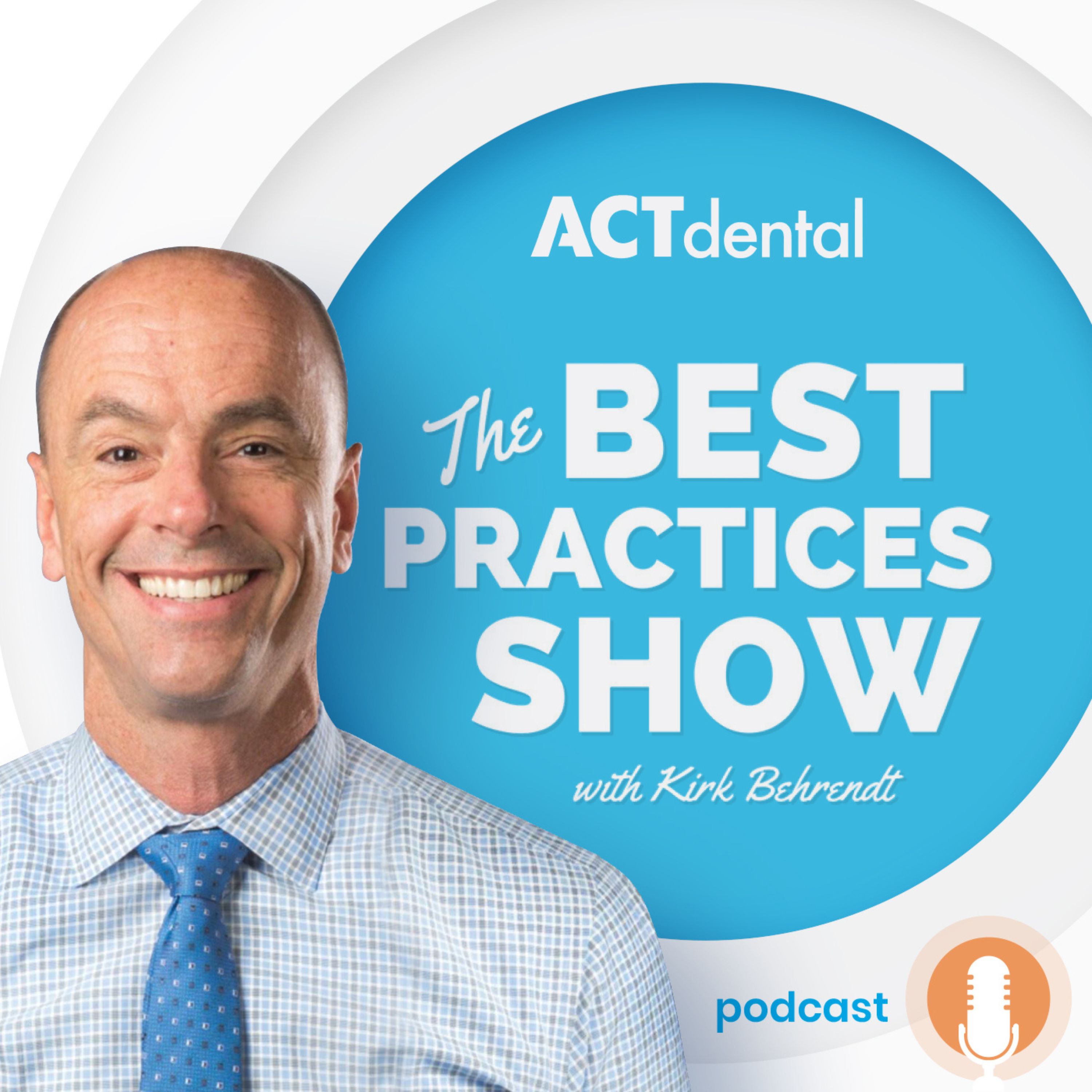Episode 12
12: Dental Insurance Independence - Mark Murphy
Dr. Mark Murphy is here to talk about how dentistry is the number one profession in the US. It is a profession that allows dentists freedom to choose how, when, and where they want to practice. Dentists can choose how they practice and try different approaches until they find what works for them.
One of the hurdles many dentists face is dealing with dental insurance. Dr. Murphy shares how it’s a good idea to assess your risk before giving up on insurance. He also shares his step-by-step systematic process to dental insurance independence. He has a five step approach to understanding the risk and mitigating it.
You can find Mark here:
MarkMurphy@funktionaltracker.com
Show Notes
[02:31] What Dr. Murphy knows for sure. Dentists have freedom of choice and it is still the greatest profession ever.
[04:20] Dentistry was ranked the number one profession in the United States. As a dentist, you can try anything and switch it up if it doesn't work. Very few dentists go bankrupt.
[05:30] Mark is from Detroit. In spite of, failing economics Detroit dentistry survived. The ones who weren't dependent on insurance did the best.
[07:40] Dr. Murphy's step-by-step process. Don't cut off insurance without knowing the risk. Do the right preparation and planning.
[09:28] How dentistry has lost 2% a year. More people are trying to get rid of insurance. The first step is to wait.
[10:16] Step 1: Do the math and find the percentages of insurance. Categorize by company, patients, and dollar amount.
[11:49] Figure out who could leave, and how you will make the same money and work fewer hours.
[13:18] Full production before insurance write offs. Find how much you write off for insurance and how many patients have insurance that is being written off.
[14:21] Risk weighted analysis will let you know which insurance companies to look at.
[14:43] P&L will also tell you what you make in total compensation. Use this as the standard to find the insurance net that will get you to that number.
[16:27] Finding your freedom day of how far you have to work into the year.
[16:51] Step 2: Creating a value proposition for your patients. If you don't have one add one to your mix of services.
[18:08] Finding your value proposition and what has the best real value to let patients know they are in a better place.
[18:54] People come to you because of you. Having a value proposition.
[20:15] What if 2/3 of your patients left and you would still be OK?
[22:27] Step 3: Explain to the patient your value proposition.
[24:44] How it might take you six months to get some skills to brag about and longer to share this information with patients.
[25:09] It takes 5-7 years to become an overnight success.
[25:26] It's not just technical it is also behavioral. Having the entire team doing value interpretation up front.
[28:22] How dental income was on a decline since 2005. PPOs crossed the 50% barriers.
[30:45] How insurance is more like a coupon or discount plan.
[31:36] How we taught patients to become insurance dependent.
[32:34] Moving away from insurance is not mechanical it is behavioral. You have to own the value proposition. You have to engage your team with good leadership skills.
[34:50] Step 4: Let your patients know that you are no longer using insurance coverage for dental care.
[35:40] Most people are still concerned if they can still be patients. Have the one on one conversation and sealing the deal.
[37:07] How people skim letters. The written word is linear. Be very careful with that letter.
[38:20] The challenge of getting old thinking out of a practice.
[39:32] Fee for service patient based care.
[40:29] How leaving insurance abruptly can have a disastrous effect.
[41:37] Full fee that you would like to get. Non-par with any fee reduction. UCR or PPO discounts.
[44:47] Cutting costs with fee reductions. With PPO fees, you can reach out and negotiate.
[46:26] The importance of asking yourself how you want to practice.
[46:48] Most dentists wish they could do more comprehensive care.
[49:35] Segregating the kind of growth you want to have. Get the right patients and decline entitlement minded patients.
[51:39] Step 5: Having the communication with each patient over the next six months.
[53:10] How this is an opportunity to truly differentiate yourself as a young dentist.
[53:46] Creating a patient base of people who come to you on a certain premise.
[57:24] A lifetime of becoming a better communicator. Once you get good at these five steps, the entire office confidently communicates with the patient.
[58:32] As you repeat the conversation, the conversations will get better over time.
[59:23] Making mistakes and correcting them is learning.
[59:48] We are fortunate to live in times where we have freedom of choice. If you are open and willing to suspend biases and listen to other concepts, you might find a way to chase the dream.
Links and Resources:


